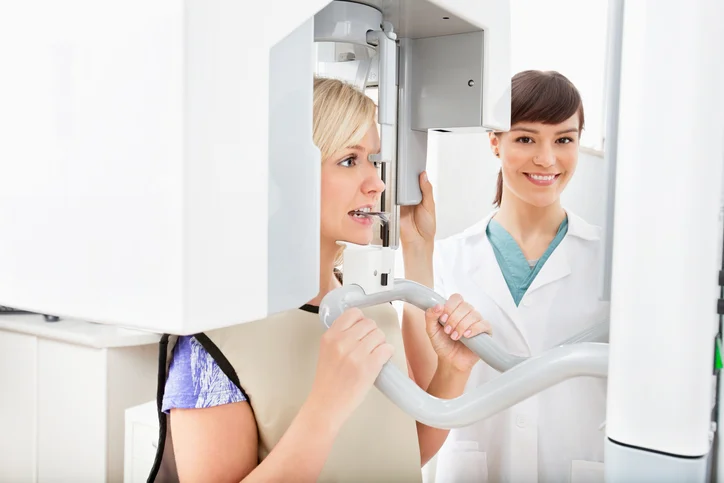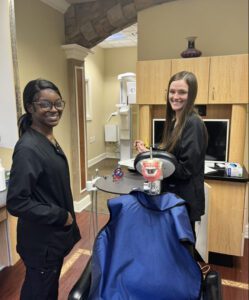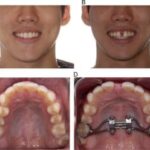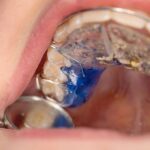When you visit a dental office, you may interact with various dental professionals who work together to ensure your oral health. One important member of the dental team is an Expanded Functions Dental Assistant (EFDA). An EFDA is a dental assistant who has received additional training and certification to perform advanced tasks and procedures under the supervision of a dentist.
Expanded Functions Dental Assistants play a crucial role in providing quality dental care to patients. They are trained to perform a wide range of tasks, including taking and developing dental x-rays, applying sealants and fluoride treatments, and assisting the dentist during procedures such as fillings, extractions, and crowns. EFDA’s are also responsible for educating patients on proper oral hygiene practices and post-treatment care.
One of the main advantages of having an EFDA on the dental team is that they help to streamline the workflow in the dental office. By being able to perform certain procedures, they free up the dentist’s time, allowing them to focus on more complex cases and treatment planning. This ultimately leads to improved efficiency and patient satisfaction.
If you are considering a career in dentistry, becoming an Expanded Functions Dental Assistant can be a rewarding choice. Not only will you have the opportunity to work closely with patients, but you will also play a vital role in helping them achieve and maintain optimal oral health. With the increasing demand for dental services, EFDA’s are in high demand, making it a promising career path with excellent job prospects.
What is an Expanded Functions Dental Assistant?
An Expanded Functions Dental Assistant (EFDA) is a dental professional who has undergone additional training and certification to perform advanced dental procedures. They work closely with dentists and dental hygienists to provide comprehensive oral healthcare to patients.
Education and Training
To become an EFDA, individuals must first complete a dental assisting program and become certified as a dental assistant. They then undergo additional training in expanded functions, which can vary by state. This training typically includes coursework and hands-on experience in areas such as dental radiography, dental materials, dental anatomy, and dental procedures.
Scope of Practice
An EFDA has an expanded scope of practice compared to a regular dental assistant. They are trained to perform a variety of advanced dental procedures under the supervision of a dentist. These procedures may include placing and removing dental fillings, taking impressions, placing temporary crowns, applying sealants, and performing certain orthodontic procedures.
Assisting the Dentist
One of the main roles of an EFDA is to assist the dentist during dental procedures. They prepare the treatment area, sterilize instruments, and hand the dentist the necessary tools and materials. They also help with patient management, ensuring the patient is comfortable and informed throughout the procedure.
Patient Education
Administrative Tasks

In addition to their clinical duties, EFDAs may also perform various administrative tasks in the dental office. This can include scheduling appointments, managing patient records, and assisting with billing and insurance claims.
Overall, an Expanded Functions Dental Assistant is a valuable member of the dental team. Their advanced training and skills allow them to provide high-quality dental care and support to both the dentist and the patients.
What Do They Do?
An Expanded Functions Dental Assistant (EFDA) plays a crucial role in the dental office. They work closely with the dentist to provide high-quality dental care to patients. Their main responsibilities include assisting the dentist during procedures, performing certain dental procedures themselves, and ensuring the comfort and safety of the patient.
In addition to assisting the dentist, EFDA’s are trained to perform certain dental procedures themselves. This includes tasks such as taking dental impressions, applying sealants and fluoride treatments, and placing temporary fillings. They may also be responsible for taking and developing dental X-rays, and performing basic laboratory procedures such as pouring and trimming models.
Ensuring the comfort and safety of the patient is another important aspect of an EFDA’s role. They greet and prepare the patient for their procedure, explain what will happen during the appointment, and answer any questions or concerns the patient may have. During the procedure, they closely monitor the patient’s comfort level and communicate with the dentist to make any necessary adjustments. They also provide post-operative instructions and educate the patient on proper oral hygiene practices.
Overall, an EFDA is a valuable member of the dental team. They assist the dentist, perform certain dental procedures, and ensure the comfort and safety of the patient. Their skills and knowledge contribute to the efficient and effective delivery of dental care.
Roles and Responsibilities of an Expanded Functions Dental Assistant
An Expanded Functions Dental Assistant (EFDA) plays a crucial role in the dental office by assisting the dentist in a variety of tasks. They are trained and certified to perform advanced dental procedures, allowing the dentist to focus on more complex treatments. The roles and responsibilities of an EFDA include:
1. Assisting the Dentist
An EFDA assists the dentist during dental procedures by providing the necessary instruments and materials. They also help with suctioning and retracting the patient’s tissues to ensure clear visibility for the dentist. The EFDA may also take dental impressions and apply dental materials as directed by the dentist.
2. Performing Dental Procedures
An EFDA is trained to perform a variety of dental procedures, such as placing dental fillings, applying sealants, and performing dental cleanings. They may also assist with more advanced procedures, such as root canal therapy and crown placements. The EFDA ensures that all procedures are performed accurately and efficiently.
3. Educating Patients

An important responsibility of an EFDA is to educate patients on proper oral hygiene practices and dental care. They may provide instructions on brushing and flossing techniques, as well as recommend dental products. EFDA also answers any questions or concerns that patients may have regarding their dental treatment.
4. Sterilizing and Maintaining Equipment

An EFDA is responsible for sterilizing and maintaining dental instruments and equipment. They ensure that all instruments are properly cleaned and sterilized before and after each use. EFDA also maintains the dental operatory, ensuring that it is clean and organized for each patient.
5. Managing Patient Records
https://upload.wikimedia.org/wikipedia/commons/c/ca/1×1.png
An EFDA may be responsible for managing patient records, including updating medical histories, taking and organizing dental x-rays, and documenting treatment plans. They ensure that all patient information is accurate and up to date, and maintain confidentiality of patient records.

Dr. Fidel Cann: Esteemed orthodontist with a lifelong dedication to enhancing smiles and oral health. Pioneering expertise, compassionate care.

.JPG)




